
A PRACTICAL COURSE ON THE USE OF INTRAVASCULAR ULTRASOUND
The Simple Education team have run many successful courses over the last five years, demystifying the use of coronary physiology in the cath lab for thousands of doctors from around the world.
Using a mixture of practical hands-on teaching, interactive learning aids, approachable tutors, internationally renowned lecturers and live interactive cases from cath labs in Europe, this course aims to take a new look at a key technology in the modern cath lab.
 |
Dr Andrew SharpRoyal Devon & ExeterUK |
 |
Prof Carlo Di MarioUniversity Hospital CareggiFlorence, Italy |
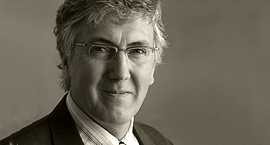 |
Prof Javier EscanedClinico San CarlosMadrid, Spain |
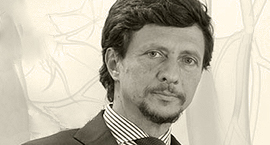 |
Prof Flavio RibichiniUniversity of VeronaItaly |
--------- |
Course Agenda: Monday 12th June 2017
Tuesday 13th June 2017
|

Dr Andrew Sharp is a Consultant Interventional Cardiologist at the Royal Devon and Exeter Hospital and Honorary Senior Lecturer at the University of Exeter in South West England. He trained in Edinburgh, London and Milan, and was awarded a research MD for his work on the hypertensive heart whilst at Imperial College. He is current departmental lead in Exeter for cardiac cath labs, hypertension and cardiac research.
He currently leads research studies in the areas of coronary physiology, pharmacological management of hypertension, renal denervation, intra-coronary imaging, complex PCI, aortic valve disease and pulmonary embolus.

Prof Carlo Di Mario is currently Professor of Cardiology, University of Florence and Director of the Structural Interventional Cardiology Division of the University Hospital Careggi, Florence, Italy. Previous posts included 15 years as Professor of Clinical Cardiology at Imperial College of Sciences, Medicine & Technology, London and Consultant Cardiologist at the Royal Brompton Hospital. He also practiced at the San Raffaele Hospital, Milan, Italy. He trained in Cardiology at the University of Padova, Italy, but he soon moved for a more in-depth interventional trying at the Thoraxcentre of Rotterdam, the Netherlands, where he also completed a PhD in Intracoronary Ultrasound Imaging and Doppler. He maintains an active clinical involvement performing more than 200 PCI per year in the last 15 years in London with the special interest in the treatment of chronic total occlusions, bifurcations, calcified lesions and diffuse disease. He is a regular TAVI operator and certified implanter for the Medtronic Evolute R and Edwards Sapien 3 transcatheter aortic valves. He participated in more than 130 MitraClip implantations in London and in the last few months back in Italy has also started transcatheter mitral treatments with clips, valves and direct annuloplasty. Professor Di Mario pioneered the use of intracoronary Doppler, pressure measurement, ultrasound and optical coherence tomography. These techniques have become the gold standard for physiological assessment of lesion severity and have revolutionised the technique of stent implantation with the use of high pressure dilatation which led to the universal application of this method in interventional cardiology. He is now applying these intravascular techniques for the guidance of implantation of fully bioabsorbable stents and optimal stent apposition across bifurcations and in complex lesions. He has led or participated in studies and trials to improve the technical success of recanalisation of chronic total occlusion and demonstrate its clinical usefulness. He cooperated with Dr Davies to the validation of iFR to assess lesion severity and discriminate the contribution of individual lesions, and with Dr Lyon in the intracoronary delivery of SERCA-2 genes via adenoviral vectors in the CUPID2 trial. He was Principal Investigator of the CARESS in AMI trial, a large multicentre trial showing that patients who receive fibrinolytic therapy for ST-elevation myocardial infarction benefit from early angioplasty. This trial and a subsequent meta-analysis have led to a change in the European Society of Cardiology and AHA/ACC Guidelines for treatment of STEMI patients. He is the PI and main recruiter of the Disrupt-CAD study with coronary lithotripsy delivered via dedicated balloons, due to be reported at ACC March 2017.
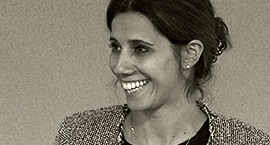
Dr Rasha Al-Lamee is an Interventional Cardiologist at Imperial College Healthcare NHS Trust in London, UK. Dr Al-Lamee’s research interests are complex coronary intervention, coronary physiology and invasive intravascular assessment. She is currently leading the ORBITA trial as part of a PhD programme under the supervision of Dr Justin Davies and Professor Darrel Francis. At Imperial College she is actively involved in the development and recruitment for a number of multi-centre clinical trials. Dr Al-Lamee has over 30 peer-reviewed publications and has presented at international Cardiology conferences worldwide throughout her clinical career. She studied at the University of Oxford and University College London. She went onto complete her training as a junior doctor on the Barts and the London Medical rotation before being appointed as a Specialist Registrar on the North West London Cardiology rotation in 2006. Dr Al-Lamee has eleven years of Cardiology experience and completed three years of Interventional Fellowship training at Hammersmith Hospital in London. She also spent one year training as an Interventional Fellow under the supervision of Professor Antonio Colombo in Milan. She completed specialist training in Cardiology in 2013.
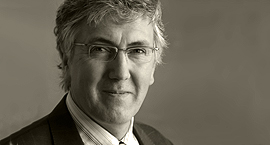
Prof Javier Escaned is Consultant Interventional Cardiologist / Associate Professor and Head of Section, Cardiology Department, Hospital Clinico San Carlos (Madrid, Spain). He trained as a cardiologist the United Kingdom (Queen Elizabeth University Hospital, Birmingham and Walsgrave Hospital, Coventry) before moving to the Thoraxcenter / Rotterdam (The Netherlands), where he obtained his PhD degree in 1994. Author of more than 200 scientific articles, books and book chapters on different aspects of interventional cardiology, imaging and physiology, his latest contribution is the textbook “Coronary Stenosis. Imaging, Structure and Physiology”, co-edited with Patrick W Serruys. He is currently co-director or EuroPCR. Some of his additional interests are philosophy, education and music.
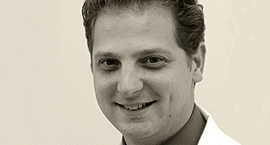
Dr Allen Jeremias is the Director of Interventional Cardiology Research and Associate Director of the Cardiac Catheterization Laboratory at St. Francis Hospital, Roslyn, NY. He was previously an Associate Professor and the Director of the Cardiac Catheterization Laboratory at Stony Brook University Medical Center. He is also a member of the Cardiovascular Research Foundation, New York, where he currently serves as the Director of the Physiology Core Laboratory.
Dr Jeremias earned his medical degree at Heinrich-Heine-University School of Medicine in Düsseldorf, Germany, and a Master of Science degree at Harvard Medical School. He completed his Medical training at The Cleveland Clinic Foundation, Stanford University School of Medicine, as well as Beth Israel Deaconess Medical Center, Harvard Medical School.
Dr Jeremias is board certified in cardiovascular medicine and interventional cardiology and is a Fellow of the American College of Cardiology as well as the Society for Cardiovascular Angiography and Interventions. Dr Jeremias has numerous publications in the area of interventional cardiology and is the editor of the medical text Cardiac Intensive Care. He is the author of Your Personal Guide to Angioplasty, a patient-centered book focusing on coronary artery disease and various treatment options. He also is the recipient of numerous awards, including Castle Connolly’s Top Doctors: New York Metro Area, 2009 – 2016.
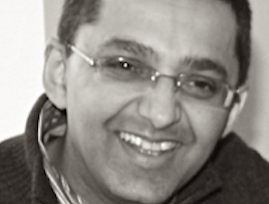
Prof Rajesh Kharbanda graduated BSc Medical Sciences (1st) in 1989, and MBChB from Edinburgh Medical School, Scotland in 1991. After training in Edinburgh and Glasgow, he commenced Specialist Cardiology Training in North West London in 1995. He completed his PhD in Clinical Cardiovascular Pharmacology at University College London in 2001. He was appointed British Heart Foundation Clinical Lecturer at the University of Cambridge 2001-2004, and completed clinical and academic training at the Addenbrooke's and Papworth Hospitals. He held an Interventional Fellowship at Toronto General Hospital, University of Toronto 2004-2005. He was appointed Consultant Interventional Cardiologist at the Royal Brompton and Harefield NHS Trust in 2006 and since 2007 at John Radcliffe Hospital, Oxford University Hospitals. His clinical practice is general cardiology with a focus on coronary intervention and TAVI. He and has developed an established clinical research programme, focussing on coronary physiology, ischemia-reperfusion injury and cardio-protection. His main areas of ongoing research are on how to further optimise PCI outcomes in ACS with a focus on the microcirculation assessed by coronary physiology. The Oxford BRC, and the Radcliffe Department of Medicine, University of Oxford support this work. He has published widely, including original research publications reviews and invited editorials.
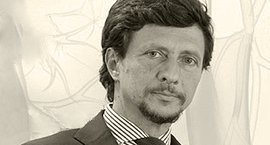
Prof Flavio Ribichini is Professor of Cardiovascular Medicine at the University of Verona and Director of the Cardiovascular Interventional Unit at the University Hospital. He teaches at the School of Medicine of the Univeristy of Verona at different courses, medical students, nurses, physiotherapists, residents of the School of Cardiology and PhD students. Director of the PhD School of Life and Health Sciences of the University of Verona. Member of the Task Force for Guidelines in Myocardial revascularization of the European Society of Cardiology. Member of the Editorial Board of the European Heart Journal since 2010. Member of the European Rotablator Club, the European Bifurcation Club and the European Expert group on Impella circulatory assistance. He is coordinator, Principal Investigator or member of the steering committees of several clinical trials. He is also the author of over 200 full publications on clinical and basic cardiovascular research in peer reviewed scientific journals available on PubMed.
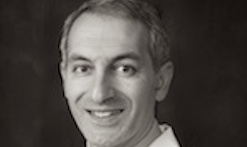
Prof Habib Samady trained in general cardiology, nuclear cardiology and interventional cardiology at Yale University School of Medicine from 1994 to 1999. He was Assistant Professor of Medicine at University of Virginia from 1999-2003 and Clinical Associate Professor of Medicine at Eastern Virginia Medical School from 2003-2005. He joined the Division of Cardiology at Emory University in 2005. In 2009, he became Professor of Medicine and in 2011, Director of Interventional Cardiology at Emory University and Director of the Cardiac Catheterization Laboratory of Emory University Hospital. He has supervised and participated in the training of over 60 interventional cardiology fellows and over 100 general cardiology fellows. He has received several outstanding teaching awards. Dr. Samady has an actively funded clinical and translation research program (including from the National Institute of Health, the American Heart Association and industry) to investigate 1) hemodynamic mechanisms associated with progression of human coronary atherosclerosis 2) evaluation of pharmaceutical agents for treatment of coronary microvascular disease, endothelial dysfunction, coronary vasospasm and non obstructive atherosclerosis 3) biomechanics of permanent and Bioresorbable coronary vascular devices. These programs involve collaborations with Biomedical Engineering at Georgia Institute of Technology, Emory Vascular Biology and Emory Biomathematics. Dr. Samady is Deputy Editor of JACC Cardiovascular Interventions, is on the editorial board of numerous cardiovascular journals, and is extensively published in the fields of intravascular imaging, coronary physiology, atherosclerosis assessment and stent biomechanics.
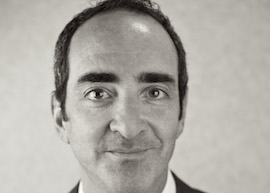
Dr Bruce Samuels is an interventional cardiologist on staff at Cedars- Sinai Medical Center (CSMC) in Los Angeles, California. Dr. Samuels completed his medical studies at Albert Einstein College of Medicine in New York before returning to Southern California to complete his residency and chief residency in Internal Medicine at Harbor-UCLA Medical Center. At CSMC, he trained in both general and interventional cardiology before joining the medical staff there. In addition to his clinical practice in coronary intervention, Dr. Samuels has actively participated in numerous interventional trials including IVUS guided therapy, functional measurement and microvascular disease. He is also working closely with the Women’s Heart Center based at CSMC, working as the lead interventionalist of the active coronary reactivity research there. As co-chair of a 30 day readmissions task force, he has helped to shape policy for CSMC in its efforts to improve quality delivery of care. He has frequently been invited as faculty to many scientific meetings and is a sought after speaker for numerous peer educational platforms. Dr. Samuels is a fellow of the American College of Cardiology and is Board Certified in Internal Medicine, Cardiovasular Diseases, and Interventional Cardiology. He is married with three sons; his outside interests include contemporary art and long distance running.
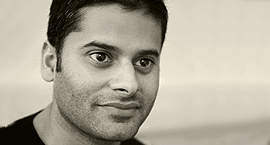
Dr Sayan Sen is a Consultant Interventional Cardiologist and NIHR Clinical Lecturer at Imperial College London. His research interests are dedicated to improving patient care. As such, they include the development and validation of new diagnostic tools, determining how the design of comparative efficacy studies can affect clinical use of competing therapies and the development and application of tools that permit a more patient centered approach to therapy. He studied Medicine at University College London (UCL), achieving a First Class (Honours) Bachelor of Science degree in Medical Sciences & Neuroscience in 2000 and graduated with distinction (Surgery) in his final MBBS Examinations in 2003. He trained as a junior doctor on the Hammersmith and UCL medical rotations prior to being appointed as a Cardiology Specialist Registrar in the North West London region in April 2006 and a NIHR clinical Lecturer in 2013. One of the themes of his research is to determine the need for potent vasodilators when assessing coronary stenosis severity. Working with Dr Justin Davies, Dr Sen’s PhD introduced and developed a new technique of stenosis evaluation (the instantaneous wave-free ratio, iFR). In addition to being the Principal Investigator of several first in man physiological studies, he was also the Medical Director of the DEFINE FLAIR trial – a global multi-centre randomized study that has recently demonstrated the non-inferiority of iFR to FFR for revascularisation decision-making in over 2500 patients.

We know that sometimes IVUS appears difficult to understand and look forward to making things Simple for you.
Including: